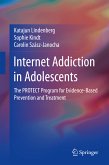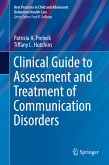This book examines the prevalence of emotional and behavioral problems in youth and the implications of little or low-quality mental health services available for them. It describes aspects of Positive Behavioral Interventions and Supports (PBIS) and school mental health (SMH) that work together to form a comprehensive service delivery model called the Interconnected Systems Framework (ISF). The term school behavioral health (SBH) is used to describe SMH and PBIS working together, as in the ISF. The book examines perspectives of key stakeholders through a series of research forums, during which participants identified critical themes for the advancement of SBH in South Carolina and the southeast region of the United States. Chapters address key themes of school behavioral health from these forums, such as collaboration, schoolwide approaches, quality of services, and support for specific populations, including military families and youth involved in the juvenile justice and child welfare systems. The book addresses barriers to providing behavioral health services at school as well as recommendations from key stakeholders for advancing SBH along these critical dimensions.
This volume is a must-have resource for researchers, professors, and graduate students as well as practitioners, clinicians, and therapists across such interrelated disciplines as clinical child and school psychology, educational policy and politics, social work, public health, school counseling, family studies, juvenile justice, child and adolescent psychiatry, and child welfare and well-being services.
Dieser Download kann aus rechtlichen Gründen nur mit Rechnungsadresse in A, B, BG, CY, CZ, D, DK, EW, E, FIN, F, GR, HR, H, IRL, I, LT, L, LR, M, NL, PL, P, R, S, SLO, SK ausgeliefert werden.









